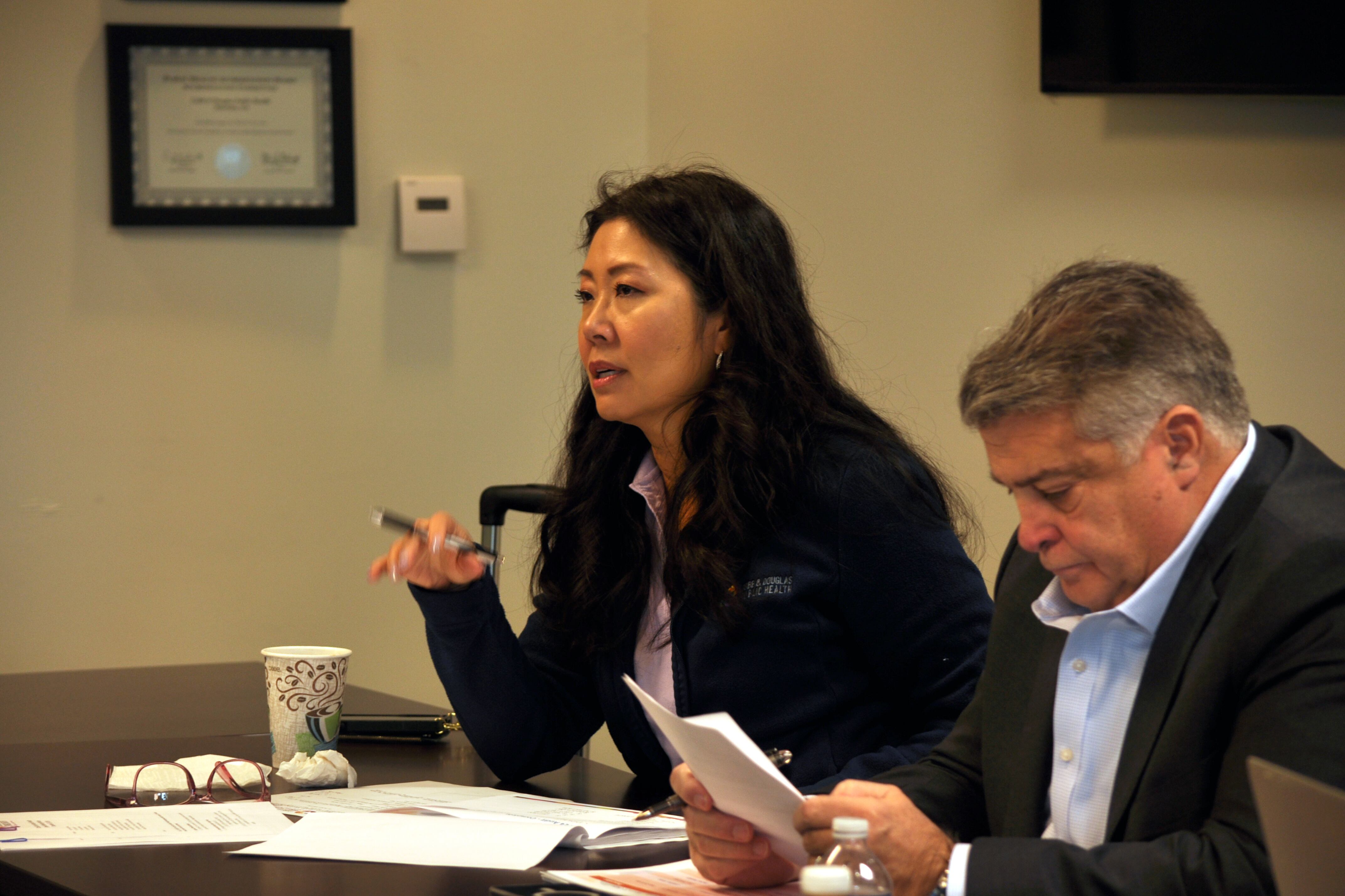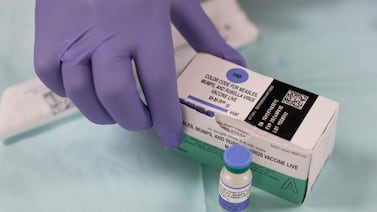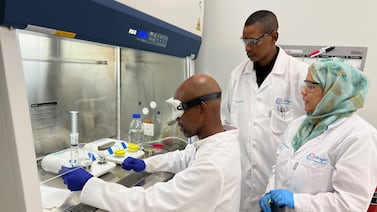Public health, explained: Sign up to receive Healthbeat’s free Atlanta newsletter here.
Days after the Centers for Disease Control and Prevention rescinded over $11 billion intended for state and local public health work across the country, health departments around Atlanta are assessing how they will continue to serve residents.
At the Cobb County Board of Health meeting on Thursday, leaders from the Cobb and Douglas Public Health agency shared funding restrictions they are facing for 2025. Dr. Janet Memark, the department’s director, said she expects the rescission from the Atlanta-based CDC to cut about $467,000 from their budget.
The funds were initially distributed to help local and state health departments throughout the country manage the Covid-19 pandemic and have since shifted to support a variety of public health initiatives, like addressing a measles outbreak in the southwest United States that has infected at least 370 residents. In a statement to NBC News, a spokesperson for the U.S. the Department of Health and Human services said the claw-back came about because Covid-19 was no longer at pandemic levels.
Memark said Cobb and Douglas has worked hard to bring in funding from a variety of sources over the past decade, and its leaders don’t anticipate the nearly half-million-dollar cut to immediately impact staffing or services. But she said the agency relies on a lot of other federal funding for programs like HIV prevention and family planning, and future cuts could compromise its operations.
“Every day, we’re just reading and waiting and seeing if any news comes,” she told the board.
Gwinnett, Newton, and Rockdale County Health Departments received notification of CDC cuts on Wednesday, Chief Operating Officer Joseph Sternberg said. He didn’t know the amount set to be eliminated, but he anticipates GNR Health to be able to manage the reductions without service or staffing cuts.
The federal funding uncertainty has led Cobb and Douglas to take a financially conservative approach to spending this year. Memark and other administrators were in the process of looking for people to fill vacant HIV director and health educator positions, but they’ve paused both searches in preparation of further federal cuts.
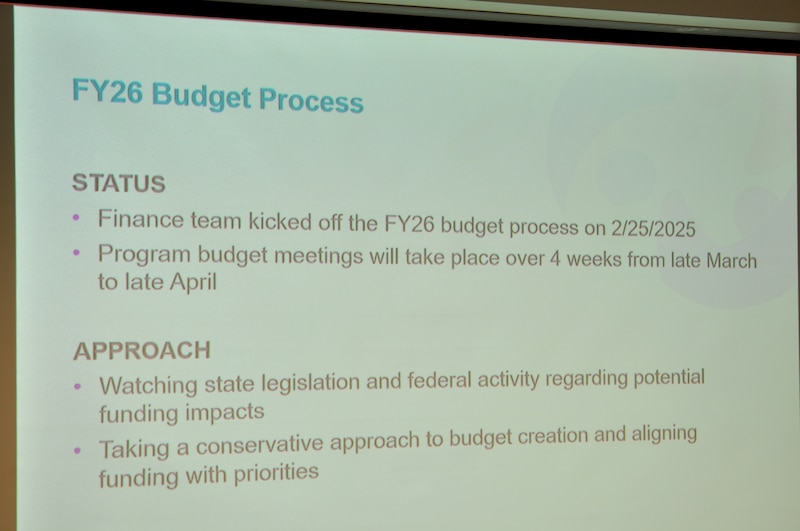
Jonathan Kemp, the agency’s administration director, said that as he and others plan next year’s budget, they’ll try to anticipate how federal cuts could impact their ability to keep employees and maintain health services.
“I don’t ever want to cut,” he said. “Happening now allows us to go, ‘Okay, let’s game plan for [fiscal year] 2026.”
At least one federal funding decision has negatively impacted one of the agency’s public health efforts. For the past few months, the department has been waiting to see if Congress would approve U.S. Sen. Jon Ossoff and Sen. Raphael Warnock’s request for $3 million to help expand health services in South Cobb County.
Lisa Crossman, the Cobb and Douglas deputy director who had been in contact with Ossoff’s office about the request, told the board the continuing resolution Congress passed in March means the department is no longer eligible for the $3 million appropriation this year. She said that has left the project at least $2.5 million short of the $17.5 million needed for the health department to complete it.
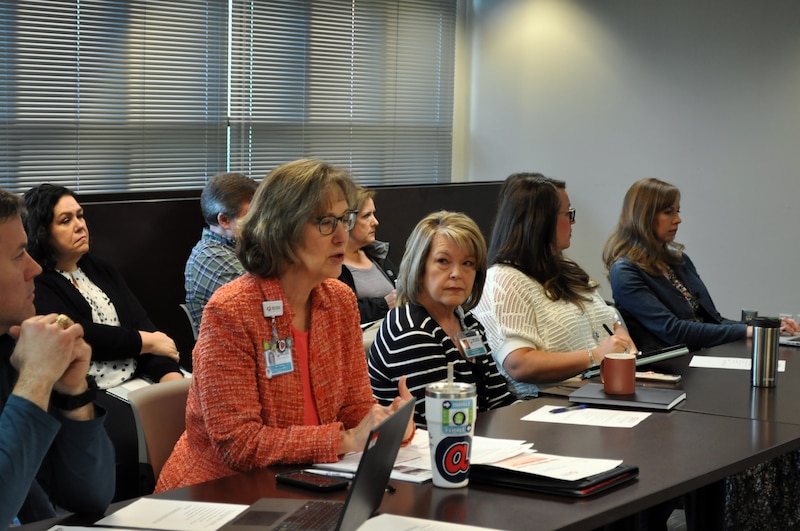
Crossman said Warnock and Ossoff, who voted against the March continuing resolution, remain supportive of the health center expansion and invited Cobb and Douglas to apply for the grant next year.
The unfunded federal request could delay the agency’s efforts to make food options, resources for new parents, and mental health treatment more accessible for South Cobb residents. But Crossman said she’s trying to find other funding sources, and the health department is determined to complete the project.
“There’s no loss of commitment on the part of [Cobb] County, city of Mableton, Cobb County Board of Health,” she said. “There’s no adjustment in our commitment to continue to make this project happen.”
Even before President Donald Trump’s administration began proposing public health cuts, local health departments in Georgia were managing funding shortfalls for disease-prevention services. In December, the state’s Department of Public Health reduced funding for local health departments to vaccinate uninsured adults, as the agency said it no longer had enough money for the supply to keep up with the demand.
Lauren Cedor, the Cobb and Douglas clinical services director, told the board Thursday that funding gap remains, which has led the DPH to fully fund some adult vaccines at the cost of others, like ones that prevent chicken pox and HPV. She said Cobb and Douglas is looking for additional ways to supply those underfunded vaccines as well.
Even with these budget constraints, Crossman said she has faith that the health department will continue to be able to effectively serve its residents this year. Nearly three decades of working at Cobb and Douglas has convinced her of the agency’s ability to adapt to new political, economic, and public health environments.
“The sky’s not falling,” Crossman said. “Yet.”
Healthbeat Atlanta reporter Rebecca Grapevine contributed to this report.
Allen Siegler is a reporter covering public health in Atlanta for Healthbeat. Contact Allen at asiegler@healthbeat.org.

